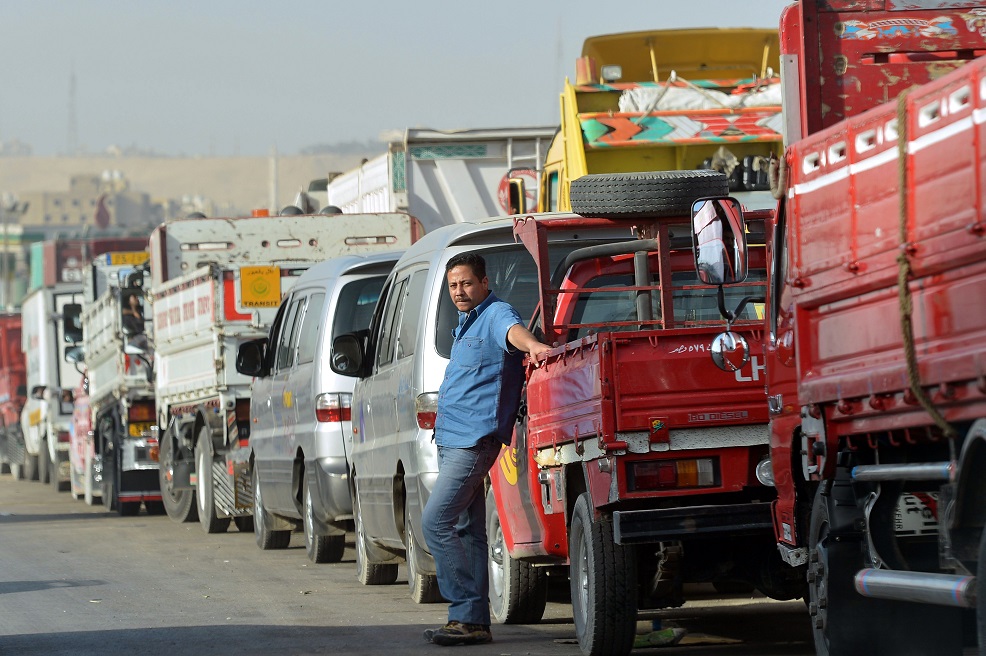
(AFP File Photo / Khaled Desouki)
Across the country ongoing fuel shortages are creating long queues, snarled traffic and even gun fights, yet officials are downplaying the issue.
According to Al-Masry Al-Youm newspaper, gunfights and scuffles have broken out over increasingly scarce fuel supplies at gas stations, with at least two reported injuries.
Teenager Mohamed Zeyad was injured on Sunday while queuing at a gas station in Minya.
The same day in Menufiya, a policeman was injured after residents blocked the Cairo-Alexandria road, in protest against the failure to secure fuel quotas which were promised by the governor.
Meanwhile, Chairman of the Division for Petroleum Products at the Federation of Egyptian Chambers of Commerce Hossam Arafat said the biggest reason for the fuel crisis is “the uneven distribution of the commodity across Egypt.”
He added that it is not a nationwide dilemma. “Let’s not forget that the fuel problem differs from one governorate to another,” he said.
“While you may hear of such stories and clashes in areas like Menufiya or Minya, areas in Cairo may not suffer the same problem.”
Cairo-based taxi driver Atef Mahmoud, who commutes between governorates, questions Arafat’s statement, saying the shortfall is not confined to specific areas. “This is the same story [told during last year’s fuel crisis]; it’s impossible to continue on with the ongoing shortages of fuel and electricity. How are we supposed to live?” he asked.
Long queues and fuel shortages have caused uproar across governorates since January, leading to traffic jams and long queues near gas stations and roadblocks erected in protest to the crisis.
Businesses and factories have also been affected by the fuel shortages, with some being forced to close. Brick and cement makers faced 75% increases in their gas bill after the government cut subsidies in February while their fuel oil prices rose by 50%.
Egypt’s lack of foreign currency reserves has worsened the fuel crisis, as the country struggles to pay for imports.
In February, former minister of petroleum Osama Kamal addressed the problem by suggesting curbing fuel subsidies through the introduction of a smart card system. The system, to be introduced in July, aims to provide consumers with a ration of subsidised fuel and reduce the country’s energy subsidy bill by over EGP 30bn.
The reduction in subsidised fuel, among many other products and services, is part of the government’s plan to secure the pending $4.8bn loan from the International Monetary Fund.




